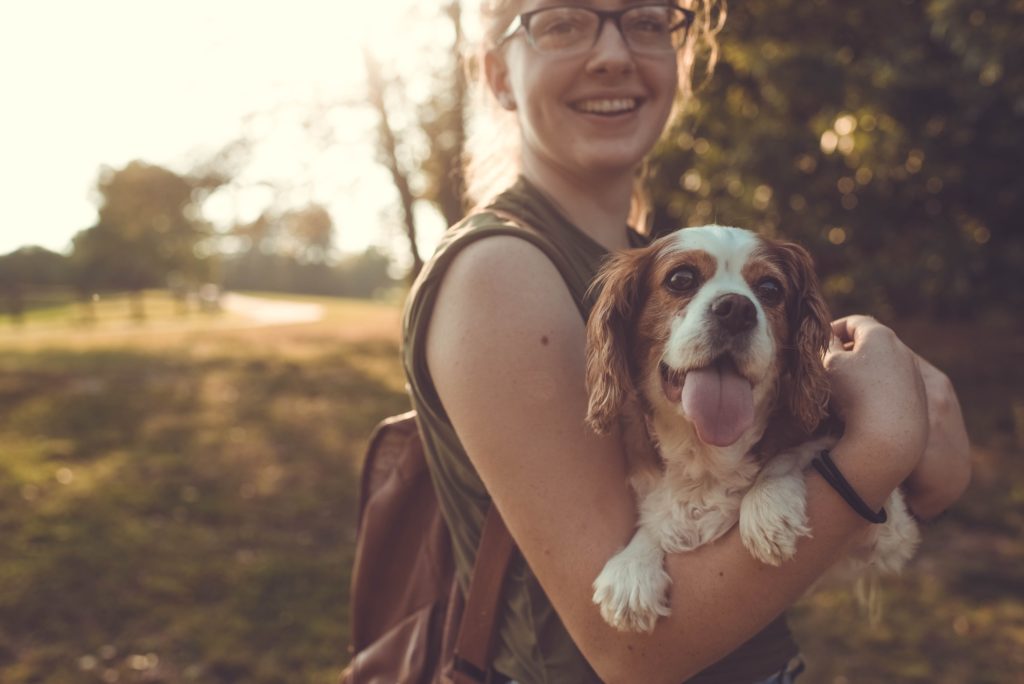Today’s post is written by a guest writer: Heeral Mehta
Pets have become a prevalent aid in helping children thrive and prosper. For the well-being of each child, it is essential to understand how pets can improve their daily lives and boost their self-esteem. The following will explain how developing positive feelings about pets can contribute to a child’s self-esteem.
Companionship:
Companionship is classified as being emotionally close with another individual or animal. Pets can often serve as an excellent source of companionship for many children because they are not judgmental when they are “down in the dumps.” Everyone at one point or another has had bad days where they don’t feel like doing anything, let alone getting out of bed. However, if your child has a pet to come home to, it makes them more excited about having something other than themselves to look forward to. The excitement that pets bring into our lives is why they tend to be such great companions for people of all ages.

Responsibility:
Pets can inspire children to set realistic goals and follow through with them. Once the child takes care of their new friend’s needs, they need to figure out how many feedings per day there are and estimate how much time it will take up during the entire day. If you have a fish and fish aquarium, they must know what fish food here they need to give to the fishes. It helps increase responsibility by allowing the child to learn what actions lay ahead of them before even beginning any task or project to be fully prepared for everything that comes with it.
Confidence:
Pets help children become more socially confident. For example, looking after a pet shows other people that you can take care of something and aren’t afraid to show others your skills. If your child loves dogs but is scared of the veterinary or grooming area, it can be intimidating or even scary. However, suppose an adult were to hold the child’s hand and reassure them during the entire process, and they do well on their first try at having a dog groomed. In that case, we could assume there would not be so much anxiety in the future when trying new things due to success in conquering such fearful tasks.

Empathy:
Pets teach children to be empathetic towards others by allowing them to see what it’s like to be in another living creature’s shoes. For example, if your child has a hamster they are responsible for feeding every day, they will eventually start feeling bad when you don’t give them any food because their hungry little faces stare up at you with longing eyes while making squeaking sounds until you finally say “okay” and feed them. If the child thinks about what life would be like if they were in the hamster’s position, surrounded by toys and a wheel they can play on all day but are never allowed to eat any of it. They would probably do whatever it took to get something to munch on.
Knowledge about themselves:
Pets allow children to experience unconditional love from another living creature which helps them realize that there is nothing wrong with them when other people judge them. When your child comes home upset because their friends didn’t want to play with them at recess or that cheerleading tryouts didn’t go as planned, pets will help remind them that things will eventually start looking up just by being around you. Suppose the child starts crying and the pet, for example, due to sad about not being invited to a birthday party. In that case, you can always help them understand why they feel the way they do and guide them in the right direction so that there is no negativity.

Positive Feelings about animals:
Pets help children develop positive feelings towards animals by allowing them to see how amazing animals are. Dogs can smell bombs from miles away and be trained with their human handlers to search for anything dangerous such as drugs, firearms, and even bombs in airports and skyscrapers. Cats have a powerful sense of hearing that allows them to hunt down mice with little effort at all. Birds fly thousands of feet above the ground and drop seeds into rough terrain where it is unlikely for any other plant life to grow except for flowers which; what did they do? They create a beautiful garden right outside the bird’s nest that not only looks pleasant to us humans but also helps keep predators away from their little ones. Pets help children realize how amazing animals are and the fact that there is nothing wrong with them. It helps build self-esteem within children because they know deep down inside that they aren’t any different from anyone else. They see things from a different perspective, but honestly, who doesn’t?
Wrapping Up!
Parents need to teach their children about the responsibility associated with pet ownership to respect animals as living creatures. A bonus would be allowing pets in the household so that children can learn empathy by petting and playing with animals and developing positive feelings about them. Pets are also excellent learning tools for children because they show unconditional love, teach empathy towards living creatures, and comfort children experiencing emotional distress.
How Developing Positive Feelings About Pets Can Contribute To A Child’s Self-Esteem?By allowing pets in the household, parents can help their children develop respect for all living creatures while teaching them responsibility, which will assist them in building self-esteem throughout life.

As always questions and comments are welcome.
Thank you, Heeral, for this informative post.
Until next time.
Karen
x
Linked with

Discover more from The Next Best Thing To Mummy
Subscribe to get the latest posts sent to your email.
Thank you for your post. I think pets are really important for children, as long as the child is old enough and responsible enough to take on at least part of the duties of caring for the pet. You have outlined this clearly and in a humorous way. Too many times children beg for a pet and parents give in without recognizing the work that’s involved. Then the pet becomes one more chore for the parent. Your post is right on! Thanks for sharing!
#mischiefandmemories
Thanks for your kind words, Martha
So good, Karen. Our loveable St. Bernard was absolutely formative in the life of our youngest son.
Thanks for sharing, Michele
There is so much to learn from being a pet owner for everyone – thanks for joining #PoCoLo
Absoluyly, Stephanie, thanks for agreeing with my writer
Oh it really did help my children prepare for a lot of things in life from having to take care of a pet.
Thanks for linking with #pocolo
That’s great to hear, thanks for sharing with me
Pets really do teach us more than we can ever repay! Thanks for joining us on #MischiefandMemories!
Totally, Heather
These are all fantastic points and I completely agree that pets can have such a positive impact on children. We love our pets to bits! Thank you for joining us for #mischiefandmemories xx
Thanks as always for having me as a part of your linky party, Annette
Our home feels empty since our dog died over the summer and we definitely want to get new pets soon (we have pet ants but they are not very interactive! ) Thanks for linking up with #MischiefAndMemories
Sorry for you loss, Laura